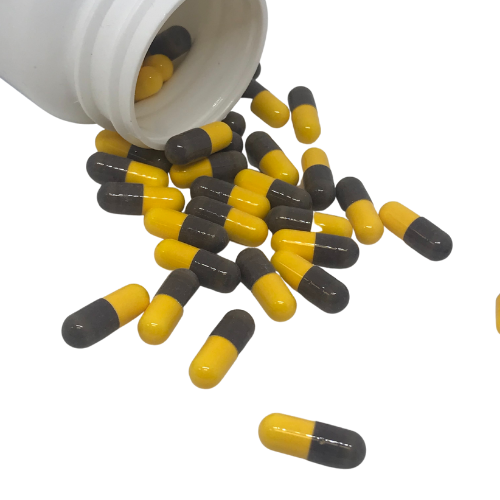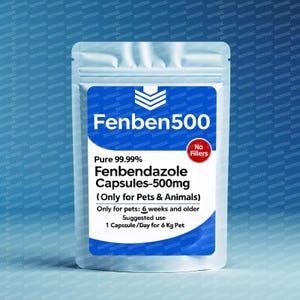fenbendazole 444: A Full Guide in Animal Care
Wiki Article
Discovering the Devices Behind Fenbendazole and Its Influence On Animal Wellness
Fenbendazole is a commonly utilized anthelmintic known for its effectiveness against numerous parasites. Its main system involves the restraint of microtubule development, which interrupts important processes in these virus. Past its antiparasitic residential or commercial properties, fenbendazole also appears to enhance immune reactions and has anti-inflammatory benefits. Comprehending these multifaceted effects can disclose new applications for pet health. Nonetheless, questions continue to be regarding its complete possibility and safety account.The Pharmacokinetics of Fenbendazole
The pharmacokinetics of fenbendazole, a commonly used anthelmintic in vet medicine, involves the study of its absorption, distribution, metabolic process, and excretion within pet systems. After management, fenbendazole is quickly taken in from the intestinal tract, with peak plasma focus occurring within hours. Its distribution is affected by factors such as tissue binding and lipid solubility, permitting it to penetrate numerous cells effectively. The drug undergoes extensive metabolic rate primarily in the liver, where it is transformed into active and inactive metabolites. These metabolites play a role in the drug's total effectiveness and security profile. Discharging happens primarily via feces, with a smaller proportion removed via urine. The half-life of fenbendazole differs among varieties, which impacts dosing routines. Recognizing these pharmacokinetic buildings is necessary for enhancing its therapeutic use and guaranteeing reliable bloodsucker control in veterinary methods.Systems of Activity Against Bloodsuckers
Fenbendazole applies its antiparasitic effects mostly with the inhibition of microtubule development in parasites. This disturbance impacts their architectural stability and mobile features, causing impaired power metabolic rate. As a result, the medicine effectively compromises the survival and recreation of different parasitical microorganisms.Restraint of Microtubule Development
Inhibition of microtubule formation represents a crucial mechanism with which specific anthelmintic representatives, including fenbendazole, apply their effects on parasites. Fenbendazole binds to tubulin, a protein that creates microtubules, disrupting the polymerization process essential for microtubule setting up. This disturbance hinders vital cellular features, consisting of mitosis, intracellular transport, and structural integrity. As microtubules play an essential function in keeping the form and feature of parasitical cells, their restraint results in cell cycle arrest and eventual fatality of the bloodsucker. This system is specifically effective against nematodes, as their dependence on microtubules for movement and nutrient absorption makes them susceptible to fenbendazole. The inhibition of microtubule formation is a vital facet of fenbendazole's therapeutic efficacy in vet medicine.Interruption of Energy Metabolic Rate
Disrupting power metabolic process is an additional essential system through which fenbendazole targets parasitic microorganisms. This anthelmintic modifies the energy production pathways within parasites, mostly influencing their ability to produce adenosine triphosphate (ATP) By preventing glucose uptake and interfering with mitochondrial function, fenbendazole limits the power resources necessary for the survival and recreation of these microorganisms. As an outcome, parasites come to be significantly prone to environmental stresses and immune actions. The disturbance in power metabolic process not only influences the parasites straight but likewise decreases their capability to take in nutrients, even more hindering their growth - fenbendazole 444. On the whole, the disruption of basal metabolism represents a fundamental aspect of fenbendazole's efficiency versus numerous parasitical infections, adding considerably to enhanced animal health resultsPossible Negative Effects and Safety Profile
The prospective side results and safety profile of fenbendazole warrant cautious factor to consider, especially in vet applications. While generally related to as safe, some animals may experience negative responses, consisting of gastrointestinal disruptions such as vomiting and looseness of the bowels. Furthermore, neurological signs, although unusual, have actually been reported in sensitive people, highlighting the need for surveillance throughout treatment.
Fenbendazole's safety and security in different varieties, consisting of pet dogs and cats, has actually been recorded, yet dosage and period of therapy need to be thoroughly managed to lessen dangers. Pregnant or lactating animals may additionally call for unique attention, as the impacts on establishing unborn children or nursing children are not totally comprehended.
Normal vet consultations can aid minimize prospective adverse effects and assure the medicine is administered suitably. While fenbendazole is an effective anthelmintic agent, alertness regarding its side results is vital for keeping animal health.
Fenbendazole's Impact on Immune Function
Fenbendazole has been kept in mind for its prospective to regulate immune system reactions in pets. Its anti-inflammatory homes may add to boosted immune feature, supplying a dual benefit in taking care of health and wellness (fenbendazole 444). Recognizing these impacts is important for evaluating fenbendazole's duty in vet medicationImmune System Modulation

Anti-inflammatory Characteristics
Anti-inflammatory impacts represent a considerable element of fenbendazole's impact on immune function. Study shows that fenbendazole may decrease the manufacturing of pro-inflammatory cytokines, which are pivotal in mediating inflammatory feedbacks. By regulating these cytokines, fenbendazole can possibly minimize inflammation-related conditions in animals. This anti-inflammatory activity not only aids in handling signs and symptoms related to different diseases but also boosts general immune system effectiveness. Additionally, its capacity to advertise a well balanced immune action helps protect against excessive inflammatory damage, which can bring about chronic health concerns. Subsequently, fenbendazole's duty in swelling monitoring underscores its significance in veterinary medicine, giving a double advantage of antiparasitic activity and immune system support for pet health.Applications Beyond Standard Parasitical Infections
While primarily recognized for its efficiency versus different parasitic infections, fenbendazole has gathered interest for prospective applications yet traditional extent. Current studies recommend that fenbendazole may have valuable impacts on cellular health and immune feedback, making it an interesting prospect for managing various other health and wellness conditions in pets. For circumstances, its reported anti-inflammatory residential or commercial properties might supply alleviation for animals struggling with persistent inflammatory illness. Furthermore, some research shows that fenbendazole can contribute in sustaining the general wellness of try this animals by improving vitamins and mineral absorption and stomach health and wellness. Moreover, its possible as an accessory treatment in cancer cells treatment has stimulated interest, as preliminary searchings for suggest it might hinder tumor cell growth in specific contexts. These diverse applications highlight fenbendazole's convenience, urging more exploration right into its complex advantages for pet health beyond its standard use as a deworming agent.Future Research Study Instructions and Implications for Animal Wellness
The expedition of fenbendazole's prospective applications has opened up new opportunities for study targeted at improving animal health and wellness. Future studies could concentrate on its performance versus a wider series of microorganisms, consisting of microorganisms and viruses, therefore increasing its role in vet medication. The ramifications of fenbendazole's devices, such as its impact on immune modulation, warrant even more examination to recognize just how it can strengthen general health in various species.In addition, study may discover excellent does and solutions to make best use of effectiveness while decreasing prospective side effects. Checking out fenbendazole's collaborating effects with other medications could lead to more reliable treatment protocols. Longitudinal studies evaluating long-term results in pets treated with fenbendazole can provide useful understandings into its safety and security and effectiveness. On the whole, the continued expedition of fenbendazole offers appealing possibility to boost animal health, demanding a collective approach among researchers, veterinarians, and pharmaceutical programmers to promote improvements in this location.
Frequently Asked Inquiries
Can Fenbendazole Be Utilized in Livestock for Parasite Prevention?
The question of whether fenbendazole can be used in livestock for bloodsucker prevention is relevant, as manufacturers look for reliable treatments (fenbendazole 444). Research study indicates it may give benefits, however correct fenbendazole 444 guidelines and veterinary advice are crucial for secure useWhat Is the Recommended Dosage of Fenbendazole for Various Pets?

Are There Any Understood Drug Interactions With Fenbendazole?
Present understanding suggests that fenbendazole may engage with specific medications, pop over here potentially impacting their efficiency or metabolic process. Veterinary professionals recommend speaking with a vet to evaluate private animal cases and establish any kind of possible communications prior to management.Just How Does Fenbendazole Contrast to Other Antiparasitic Medications?
Fenbendazole is often compared to various other antiparasitic medications based on effectiveness, range of activity, and safety profiles. It is favored for its effectiveness versus a variety of bloodsuckers while typically displaying minimal negative effects in pets.Is Fenbendazole Effective Versus Viral or Microbial Infections in Pets?
The efficiency of fenbendazole against viral or microbial infections in pets continues to be unproven. Research largely concentrates on its antiparasitic properties, with minimal proof supporting any duty in dealing with non-parasitic infections in veterinary medication.Report this wiki page